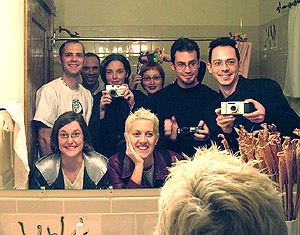As an expecting father, you’re made aware of the vaccinations that your child will need. It’s a standard topic in newborn care classes. And, of course, in this modern day, whenever teachers of these classes talk about it, they have to go to great lengths to inform people that vaccinations are safe. Because, it turns out, there are a number of conspiracy types, or those simply misinformed, who think vaccinations are unsafe, and who deny their children getting them. The problem with that, of course, is that infectious diseases are on the rise among children, which is upsetting as it’s wholly preventable.
If you want to get your dander up, listen to a segment from yesterday’s Science Friday, where host Ira Flatow talks to the highly credentialed Paul Offit about this irrational fear of vaccinations. What will upset you is Chantal, who calls in, and, in the face of overwhelming evidence to the contrary, insists that she will not let her children be vaccinated according to the recommended program. Her logic is twisted and inconsistent (she first sites governmental regulations about appropriate amounts of metals in the system, but then later says she doesn’t trust the CDC’s recommendations about vaccinations, because she doesn’t trust the government telling her what to do). Somehow, at some point, she got this notion into her, and no amount of reasoned discussion will dissuade her. What’s most upsetting is that this behavior doesn’t just affect the children of these ignorant parents, but of other children (particularly those children who cannot be vaccinated for certain medical reasons).
Is there a good reason for not simply requiring children to be vaccinated, parents’ desires not withstanding? I’m sure this makes libertarians froth, but the second-order effects of not vaccinating have a deleterious impact on others, not just the child under discussion.
 I know I’m quite late to this, but I also know this show is remarkably obscure, and was released on DVD only towards the end of last year, I think.
I know I’m quite late to this, but I also know this show is remarkably obscure, and was released on DVD only towards the end of last year, I think. 